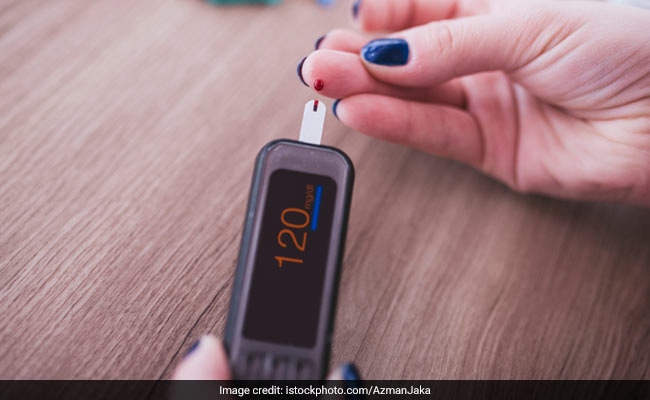
Exercise is known to have a number of benefits, other than weight management and keeping your body fit. Evidence is mounting that exercising, even for short periods of time, may help increase level of mood boosting hormones and may even help keep mental health issues at bay. Now, a new study has indicated that exercising for just as much as 15 minutes may help improve insulin sensitivity, muscle size and strength in men, who are obese and are suffering from type-2 diabetes. The study effectively indicated that even short-duration and high intensity resistance training may reverse type-2 diabetes in overweight men. The study was conducted by the researchers at University of Glasgow and the results of the study were published in the journal Experimental Physiology.
The study can be potentially useful for health professionals dealing with cases of diabetes, as obesity is a risk factor for type-2 diabetes and is also found to a characteristic of the disease. According to the study, a focused six-week exercise programme, made up of three 15-minute long sessions per week, can dramatically and positively impact insulin sensitivity, as well as muscle strength and size in diabetic men. Furthermore, the researchers concluded that short duration high intensity workouts, which result in exhaustion, were as effective against type-2 diabetes as longer duration exercise sessions. The study is pertinent in today's scenario, where engaging high intensity exercises is more achievable than working out for 45 minutes every day.
Also Read: Diabetes Diet: Fruits Diabetics Should Avoid To Keep Their Blood Sugar Levels In Check
Previous studies had suggested that 45-minute long exercise sessions involving resistance training with multiple sets was effective in reducing insulin sensitivity and improve muscle size and strength. The research study was conducted on 10 overweight men, who had Body Mass Indices (BMI) between 25 and 30, who were asked to train for 15 minutes every day for three days per week. Their insulin sensitivity was measures before and after the training sessions and it was observed that the insulin sensitivity increased by 16 percent, following the short duration workouts. Talking about the applications of the study, study lead Stuart Gray said, "On top of these results, we know that the gym is not for everyone. Therefore, we also need to see if we can get people doing similar exercises at home without gym equipment, to achieve similarly beneficial effects."
Eating a diet rich in soluble fibre is also known to improve insulin sensitivity in patients. Here are some foods that are rich in soluble fibre, which may help regulate blood sugar levels and improve insulin sensitivity in people with type-2 diabetes:
1. Whole Grains: Food grains that still have the bran and endosperm intact are known as whole grains and these are chock-full of soluble fibre, which fight cholesterol and weight gain, and also help in slow release of sugar in blood.
2. Broccoli: A June 2017 study found that including broccoli in diabetic diet can potentially slow down and even reverse type-2 diabetes, due to the presence of the compound sulforaphane.
Also Read: 5 Vegetables You Must Include In Your Diabetes Diet

Diabetes: Broccoli contains sulforaphane which helps Type 2 diabetes patients
3. Pears: One of the best fruits for diabetics to include in their diet is pear, which is rich in fibre. Eat the fruit with its skin to get all the fibre you can, from the fruit.
4. Nuts: A 2012 research study from University of Lousiana said that people who consume nuts like almonds, walnuts, pistachios, macadamias etc. in their daily meals have lower risk of developing type-2 diabetes, due to the presence of heart-healthy fats, proteins and antioxidants.
5. Carrots: Among vegetables, carrots have the lowest glycaemic index (GI). They are low in calories and deliver plenty of fibre. Additionally, the presence of beta-carotene, which is converted to vitamin A in the body, makes carrots healthy for those with type-2 diabetes.
(With ANI inputs)
Track Latest News Live on NDTV.com and get news updates from India and around the world

